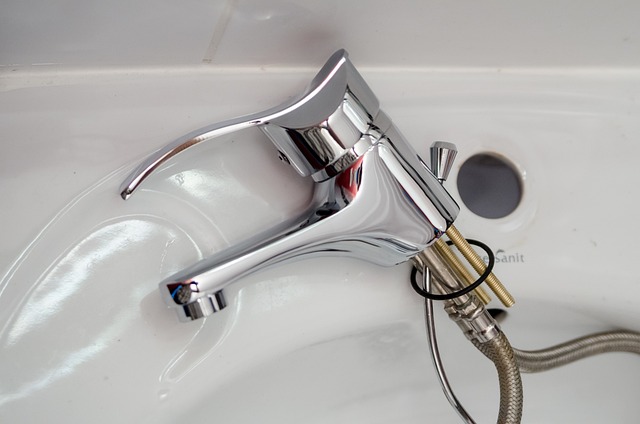Regional energy costs for plumbers businesses in the UK are often ignored by many small business owners. Running a plumbing business in the UK isn’t just about fixing leaks and installing boilers, it’s also about managing costs wisely. Moreover, energy costs significantly.
Ignoring the energy costs would not do any good. Because, the location of your plumbing business in the UK can have a noticeable impact on your monthly bills. The differences aren’t just a matter of a few penny, they can add up to hundreds or even thousands of pounds each year.
In this post, we’ll break down how regional energy costs affect plumbing businesses across the UK. You’ll discover which regions are more expensive, why these differences exist.
Why Energy Costs Matter for Plumbing Businesses?
Energy costs may not appear as crucial at the first sight. Regional energy costs for plumbers businesses in the UK encompasse a great expense in business. But it certainly affects the business in a great manner. Every job you take on, every mile you drive, and every hour you spend in your workshop involves energy in some form. When these costs rise, your operating expenses do too, directly affecting your profit margins.
One of the most significant energy-related expenses for plumbers is transportation. Most plumbing jobs require travelling between customer homes, construction sites, or commercial buildings. With fuel prices often fluctuating and sometimes rising sharply in certain regions, your weekly fuel bill can quickly become a burden. If you have multiple vans on the road, even small changes in fuel prices can add up to a major expense over the course of a year.
Many plumbing businesses operate from a base an office, storage unit, or small warehouse. Depending on where your business is located, energy tariffs can vary greatly. A plumbing firm based in a high-cost region may end up paying significantly more than one in an area with lower commercial energy rates.
Even the tools and equipment plumbers use can contribute to energy consumption. Power tools, testing devices, and cleaning systems often rely on batteries or mains electricity. Frequently using tools leads to greater energy consumption.
Energy costs also affect how competitively you can price your services. In order to maintain a healthy profit margin, you need to control operating expenses. That can make it harder to compete with plumbers in nearby regions where energy costs are lower. Over time, this can lead to lost business or pressure to cut costs in other areas, such as staffing, marketing, or equipment maintenance.
Furthermore, unexpected increases in energy prices can disrupt your cash flow. Plumbing work can be seasonal, and during slower months, even minor cost hikes can create financial stress.
Regional Breakdown of Energy Costs in the UK
Energy costs across the UK aren’t the same everywhere, and that’s a key point plumbing businesses need to understand. The cost of electricity and gas mainly depends on the location of the business.
In general, energy prices tend to be higher in areas where infrastructure costs more to maintain or where demand is greater. For example, London and the South East often see higher commercial electricity and gas rates, partly due to the dense population, high demand, and more expensive grid infrastructure. While these regions may offer a large customer base for plumbing services, they can also be more expensive to operate.
In contrast, Scotland, Wales, and Northern Ireland can offer more competitive energy rates in some areas. Especially rural zones where government incentives or local providers help manage costs. However, these regions may come with their own challenges. Still, for businesses that manage their routes well, the lower overhead costs can create a real financial advantage.
The North East and North West of England also tend to enjoy relatively moderate energy prices. Cities like Manchester, Leeds, and Newcastle offer good business opportunities without the same high energy expenses seen in the South.
Meanwhile, in the South West, businesses may face mixed costs. Some rural parts benefit from lower rates, while certain urban zones experience spikes in pricing due to supply chain constraints. Urban areas may offer more fuel stations but often at higher prices. While rural locations might have fewer options but more stable rates.
Diesel and petrol costs can impact a plumber’s bottom line heavily. Especially for those running multiple vehicles daily.
Another factor is the availability of green energy and energy-efficient programs. Some regions offer better access to renewable energy suppliers or government-funded schemes that help small businesses reduce consumption.
Understanding these regional differences is essential. Whether you’re starting a new business, expanding to new areas, or just looking to optimise your overheads, you need to look out.
How Regional Energy Prices Affect Plumbing Operations?
Regional energy prices have a direct and often underestimated impact on how plumbing businesses operate day to day. From the way jobs are scheduled to how much is spent on fuel, heating, and electricity, the location of your business can influence more than just your energy bill.
Plumbers typically spend a large portion of their workday travelling between job sites, which means fuel costs can account for a significant chunk of monthly expenses. In regions where petrol and diesel prices are consistently higher, dramatically increase the cost of running a fleet of vans. For sole traders or small teams, even modest regional fuel differences can add up to hundreds of pounds over time.
This can influence how far plumbers are willing to travel for a job or whether they decide to serve a broader or more localised area. Energy prices also play a role in maintaining workspaces. Many plumbing businesses operate from small offices, workshops, or storage units.
In colder regions like Scotland or the North East, heating these spaces becomes more essential during long winters, and the cost can vary depending on the regional gas or electricity tariffs. Businesses in high-cost areas may find themselves spending significantly more to keep their premises operational and comfortable for staff.
The cost of powering tools and equipment is another consideration. While many tools are battery-operated or use petrol, charging stations, water heaters, and diagnostic equipment still require electricity. If you’re located in a region with above-average electricity rates, the cost of powering your operation can slowly chip away at your margins. For larger teams, this becomes an even bigger factor. Especially if your operation runs long hours or includes equipment that draws more power.
Another way regional energy prices impact operations is through planning and budgeting. Plumbing businesses need to forecast monthly expenses accurately, and significant regional fluctuations in energy costs can make this difficult. A plumbing firm in a region with volatile prices might need to adjust service rates more frequently.
In contrast, businesses in regions with more stable or affordable energy pricing can plan with greater confidence and potentially invest more in growth areas like marketing or staff training.
Finally, regional prices can influence hiring and retention. Higher operational costs in certain areas may force plumbing businesses to reduce staff hours or delay hiring, which can limit growth. Conversely, businesses with lower energy overheads may be in a better position to expand their workforce and take on more projects.
Energy Saving Tips for Plumbing Businesses
Regional energy costs for plumbers businesses in the UK can add a burden. For plumbing businesses, smart energy-saving strategies can lead to big savings without sacrificing service quality. Whether you’re running a one-person operation or managing a small team, here are practical tips to help you reduce your energy use and lower your bills.
- Optimise Your Vehicle Use
Transport is one of the biggest energy drains for plumbers. To save on fuel: Plan Efficient Routes: Use route-planning apps to avoid traffic and reduce mileage. Visiting multiple clients in one area saves both time and fuel. Regular servicing improves fuel efficiency. Check tyre pressure, change oil on schedule, and keep engines in top shape. Consider hybrid or electric models. While the upfront cost can be higher, running costs are often much lower over time.
- Cut Down on Office Energy Use
Your workspace may be small, but energy use adds up quickly. Energy-efficient LEDs can last longer and can be used as a replacement for old bulbs. Encourage your team to power down computers, printers, and lights when not needed. Installing a programmable thermostat will help to control heating. This would also help in reducing wastage of energy during off-hours.
- Make Tools and Equipment More
Power tools, water heaters, and even mobile devices all use energy. Manage them wisely. Only charge batteries when needed and unplug chargers once full to prevent phantom energy drain. Newer models often use less power and deliver better performance. Look for energy ratings when purchasing. In some cases, a manual tool may do the job just as well—without using any energy.
- Go Paperless and Digital
Digital tools don’t just save paper, they can also save energy. Reduce the usage of printers and copiers. Storing documents online reduces reliance on physical servers or constant computer use.
- Consider Renewable Energy Options
If you own your premises, renewable energy can be a game-changer. Renewable energy can reduce electricity bills to a great extent. Look into local or national energy-efficiency schemes that offer funding or rebates for energy-saving upgrades.
FAQs
- Which UK regions have the highest energy costs for plumbers?
Generally, London, the South East, and parts of the East of England experience the highest energy costs. These areas have high demand and infrastructure expenses. However, prices can change with market shifts.
- How can plumbers reduce fuel costs related to regional energy price differences?
Efficient route planning and grouping nearby jobs reduce mileage. Regular vehicle maintenance improves fuel economy.
- Do energy costs impact the pricing plumbers charge customers?
Yes, higher energy costs often lead to increased service prices to cover expenses. Some plumbers adjust pricing regionally based on operating costs. Transparent communication helps customers understand pricing changes.
- Can plumbers save money by switching energy suppliers based on their region?
Yes, comparing suppliers often reveals better rates tailored to the region. Switching to competitive tariffs can reduce monthly energy bills. Regularly reviewing contracts ensures plumbers don’t overpay.
- Are there government schemes to help plumbers with high regional energy costs?
Several schemes offer discounts, grants, or loans for energy efficiency upgrades. Eligibility varies by region and business size. These programs can significantly reduce energy expenses.
- How important is route planning to control fuel costs in various regions?
Route planning helps to reduce travel distances and also ensures less usage of fuel. It’s especially critical in regions with high fuel prices. Efficient routing boosts productivity and lowers expenses.
- Can plumbers claim any tax relief or grants related to energy costs?
Yes, schemes like the Annual Investment Allowance and green grants support energy-saving investments. Eligibility depends on the project and business type. These incentives reduce upfront and ongoing costs.
- What tools or software can plumbers use to reduce energy usage?
Energy management apps and smart meters track consumption in real-time. Route-planning software helps optimize travel and fuel use. Accounting tools assist in forecasting and budgeting energy expenses.
- How can plumbers negotiate better energy contracts in their region?
Comparing supplier offers and leveraging business size can secure favorable rates. Engaging energy brokers adds expert negotiation skills. Regular contract reviews prevent overpaying.
- How can plumbers stay updated on changes in regional energy pricing?
Subscribe to energy market newsletters, follow government updates, and join trade associations. Engaging with local energy hubs provides region-specific info. Regular supplier communication is also helpful.
Conclusion
Regional energy costs for plumbers businesses in the UK play a critical role in shaping the overall success and sustainability of their businesses. Understanding these regional differences is more than just an accounting detail, it’s a strategic advantage.
By being aware of how energy costs fluctuate between regions, plumbers can make informed decisions about where to operate, how to price their services, and what measures to take to reduce overheads. Ultimately, regional energy costs are an essential factor that every plumbing business should monitor and manage proactively.




